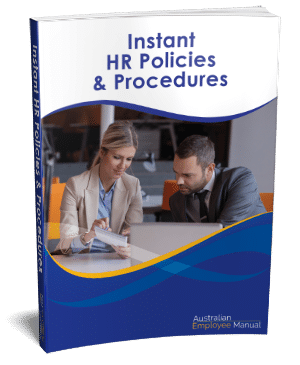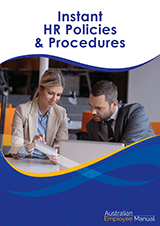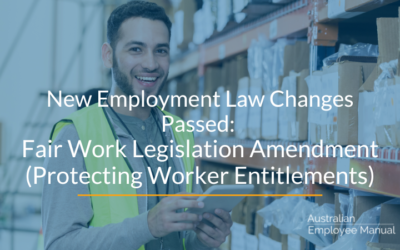Some employees can’t wait to take a holiday and take each day as soon as it accrues. Others like to collect their days off, which is great except when the collection turns into several years’ worth of leave.
Why Do Employees Accumulate Leave?
There is no one reason why an employee decides to accumulate their leave. Possible reasons include:
- Saving their leave so they can take an extended overseas holiday.
- Saving their leave to help provide an income when they take time off for a new baby.
- They can’t get the time off during the year that they want due to other employees getting in first (e.g. school holidays), so they don’t take a break that year.
- Feeling guilty for taking a break and causing additional stress on team-mates who have to cover.
- Type A personalities who don’t know how to relax, leaving them open to stress and burnout (and your business potentially liable under WorkCover).
- Fear of retrenchment if the economy is tight, so they want to accumulate leave as a potential buffer if they become unemployed.
- They want to make themselves redundancy proof by making themselves indispensable, which means not training anyone to be able to do their tasks.
- Job unhappiness, so the employee accumulates leave towards the day they resign to give them a financial buffer while they look for a new job.
- They are undertaking fraud and don’t want to be absent in case they are discovered. If the employee is any position where they have financial accountabilities or a financial processing role, or are in a procurement or IT role, then this risk should not be underestimated.
- They want to cash out a portion of their leave.
Accumulating excessive amounts of leave creates problems for both employers and employees.
Why Excessive Accumulated Leave Is Bad For Employers
- Untaken leave is a liability on balance sheets. Paying out leave liabilities on resignation or when bulk time is taken can create cash flow problems for smaller businesses.
- Leave is paid at the rate the employee is paid when they take the leave, and not when it is accrued. This means the cost to the business increases.
- Large amounts of accrued leave can negatively impact on negotiations during the sale of a business.
- If an employee decides to take all of their accumulated leave at once, then the business is left without that employee for an extended period. They may need to hire and train additional staff to cover for the absence, or the remaining team members may need to increase their productivity to take on the duties of the absent team member. This creates burnout and potential resentment in the other team members.
Why Excessive Accumulated Leave Is Bad For Employees
Annual leave is provided to help people to refresh and unwind from the stresses of work, and to allow people with options on how to manage their work/life balance, health management and study commitments. A well-balanced employee needs regular time away from work, to allow them to perform at their best the rest of the year.
Can You Force An Employee To Take Excess Accrued Leave?
Under the Fair Work Act, employers can direct an employee to take leave provided that the requirement is reasonable.
The terms under which this direction takes place is outlined either in the relevant award that covers the employee, or the National Employment Standards (NES).
Some examples where a direction by an employer for an employee to take leave is considered reasonable are:
- An employee has excess accumulated leave (e.g. eight weeks for regular workers or ten weeks for shift workers), or
- When a business closes down for a period (e.g. Christmas closedown).
What counts as excessive accumulated leave varies depending on the industry, so you need to check your awards on the Fair Work Ombudsman website for specifics that apply in your circumstance.
Can You Cash Out Excess Accrued Leave?
Some awards and industrial agreements provide for portions of excess accumulated leave to be “cashed out” at the rate the employee would have been paid if they took the leave.
There are rules around cashing out excess annual leave, including not forcing an employee to accept it as an option, and ensuring that the employee will still have four weeks of annual leave accrued after the cashing out.
From a business perspective, cashing out is a double-edged sword. Yes, it clears your balance sheet liability, but it means that:
- the employee does not get a break (increasing your WHS risk),
- if the employee is committing fraud, you have less chance to identify it,
- your other team members don’t get an opportunity to upskill, and you have fewer options to rotate staff in case of illness or resignation.
General HR Tips
Excess leave is a significant issue for a business, both financially and for the health and safety of your team members.
- Run quarterly reports on leave accruals to identify any employee with six weeks or more of accrued leave.
- Meet individually with each employee with excess leave to try and work out their reasons for accumulating the leave so that you can plan an appropriate response.
- Ensure all employees understand that you encourage them to have a good work/life balance for their own mental and physical wellbeing.
- Discuss with the employee their plans for reducing their leave, to try and reach an agreement on when and how they will take their accrued leave. Only if all attempts at reaching an agreement have failed, then move into directing the employee to take their excess leave.
- Aim for leave blocks of a week or two at a time, rather than single days scattered here or there, to help deliver maximum mental recharge options for the employee, and to allow for up-skilling for other team members.
- Make sure any direction to take excess leave gives the person adequate notice that they will be away. You can’t direct them to take leave starting tomorrow – give people a chance to plan their work/life balance.
Not sure of your rights or responsibilities? Contact the Fair Work Ombudsman on 13 13 94.




